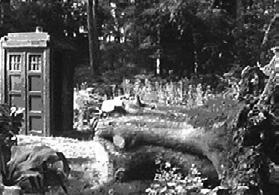
3 minute read
SPORT PSYCHOLOGY
Orienteering on Autopilot
Jo Mitchell
Have you ever been reading The Australian Orienteer and your eyes have passed over the words and your hand turned the page only to realise, after several minutes have passed, that you have not taken in anything that you have read? Have you eaten a meal and not recalled what it tasted like? Or perhaps you have been doing the long leg of an orienteering course and found yourself soundlessly singing the lyrics of a song and not quite sure how far you have run? This experience is called being on autopilot and features a lack of present moment awareness, or the tendency to go through life without paying attention to what is going on within and around ourselves.
Time travel and story tellers
Being on autopilot lets us carry out familiar tasks while allowing our mind to roam free. Like Doctor Who we become time travellers, although our destinations tend to be a little more proximal and mundane. You may find yourself travelling back in time to dwell on past experiences, maybe to berate or congratulate yourself on how poorly or well you completed the previous leg. You may be more of a future time traveller, predicting what it will feel like if the competitor that left 2 minutes behind you should catch you; or seeing yourself having difficulty running up the big hill before the 10th control; or perhaps you are thinking about what you will eat for dinner. Wherever you are, your body may be in the here and now, but your mind is travelling elsewhere, away from the immediacy of the present moment experience. When we do attend to our internal (i.e. body/mind) or external experience (i.e. environment) it is often in the context of stories we create based on our expectations, judgements and habits (e.g. I feel anxious because I always run poorly in relays; I spiked that
control because I wore my lucky socks today). At times like this it is easy to forget that we exist only in the present moment, the past has gone and the future is yet to be experienced. In a sport, as in life, all you have is this moment.
Autopilot • Lack of present moment awareness • Time travel (past or future)
When autopilot gets in the way
So what is the problem with autopilot? Potentially nothing, depending on what the purpose of your experience is, but being on autopilot at the wrong time or too much of the time (which people often do) can narrow your range of responses to present moment experiences. When we are on autopilot sensory objects (e.g. another person, a distinct rock feature, rain) are held in focal attention only briefly, if at all, before some automated thought and emotional reaction to them occurs, usually based on a limited range of past experiences. The consequence of such processing is that labels, ideas and judgements are often automatically imposed and events are rarely seen impartially. For example, I am running to the 5th control when another orienteer comes in to my vision, not feeling particularly confident after losing time on the previous control, my automatic processing leads me immediately from an awareness of their presence, to assuming they are going to the same control and a desire to punch the control first and get away from them; consequently I stop paying attention to the map and terrain because I am now paying attention to the person and an internal story along the lines of ‘how did I let them catch me? Have they already punched the control? How can I get ahead?’ On autopilot I unconsciously get caught up in my own time travel and storytelling, subsequently I become disengaged from present moment awareness and as a consequence I am more likely to make a mistake.

Autopilot and you
You may like to start observing how much of the time your mind is on autopilot (either in your orienteering or life in general) and what the consequences of this are for you. Perhaps ask yourself the following questions: • How much of the time do you spend thinking about the past or future? • How much time do you spend being present (i.e. in the moment)? • What is your performance (or enjoyment) like when you are on autopilot? To be continued... (learn how to spend less time on autopilot and the benefits for your orienteering).
Jo Mitchell is a clinical psychologist in private practice in Melbourne and recovering orienteer (with occasional relapses). She has over 15 years of experience working in sport and is completing her PhD in well-being and performance psychology. You can contact Jo at psychjm@gmail.com








